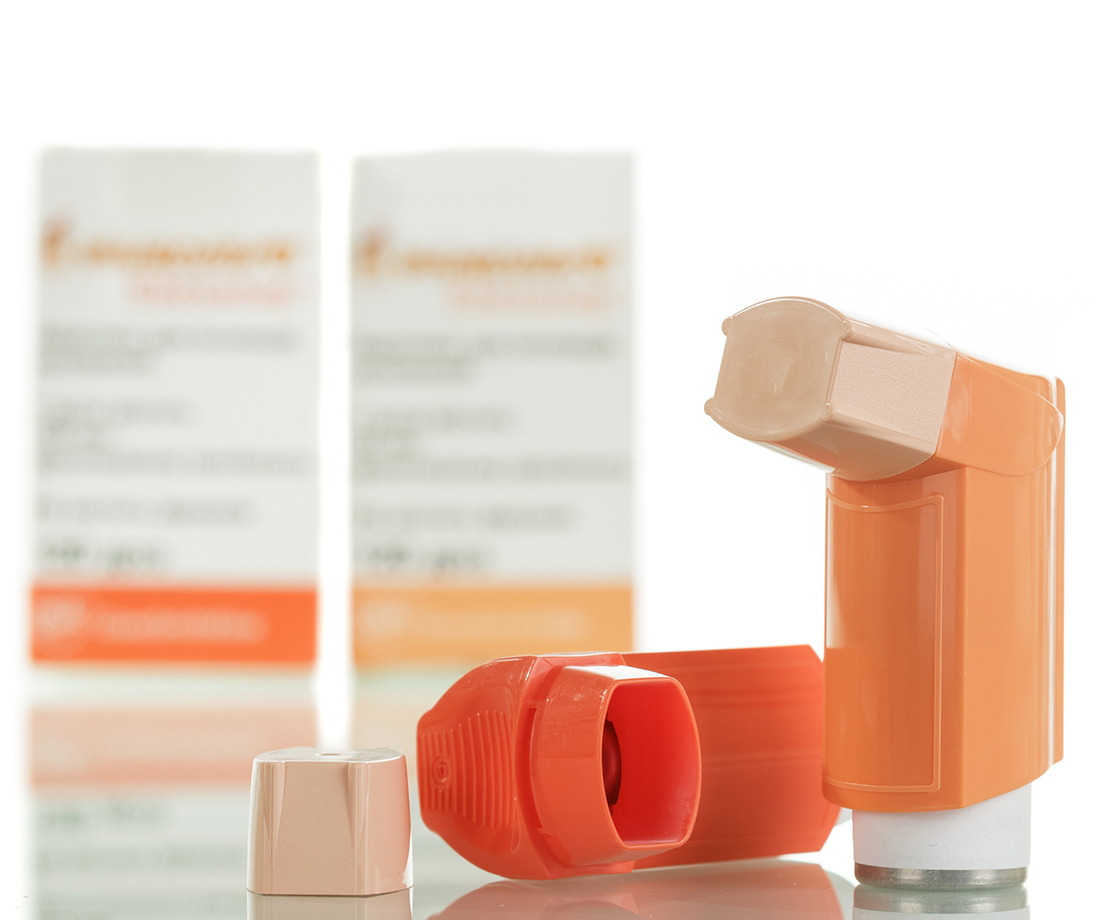Above, an image of a generic inhaler (not the Syqe technology) via iStockPhoto
An Israeli canna-business is bringing the world's first metered-dose cannabis inhaler to market, allowing doctors to provide patients with exact doses of medical marijuana in a controlled setting. Tel Aviv-based Syqe Medical has announced a partnership with pharmaceutical firm Teva Pharmaceuticals to bring their new 3D-printed cannabis technology to the worldwide market.
The metered-dose inhaler has several advantages over traditional medical cannabis products, including the ability to provide an exact dosage. A dose of concentrated cannabis vapor from the device can take full effect in three to five minutes, a substantial improvement on oils or edibles, which can take hours to be fully absorbed by the body.
The device contains thermal controllers and lung monitoring that automatically adjust the device's airflow to compensate for the user's pace of inhalation. This technology allows the device to deliver a dose with a level of precision of 100 micrograms, "a medically acceptable threshold of accuracy," according to The Jerusalem Post, that other medical cannabis products have been unable to provide. "We are able to deliver a plant with the same rigor, safety and precision as a [traditional] pharmaceutical," Syqe CEO Perry Davidson told the Israeli newspaper.
The inhaler is also a smart device, capable of transmitting usage data back to Syqe immediately after each use. This usage data can allow the company to conduct further research on the efficacy of their product as their user base expands. Rather than using oil-based vapor extracts, the device utilizes a cartridge full of preloaded VaporChips – cannabis-infused dosage units no larger than a computer chip.
Unlike the U.S., Israel supports entrepreneurs researching the medical benefits of cannabis. Syqe Medical received $1 million in funding from the Israel Innovation Authority, and also received their half-million-dollar 3D printer for free as a beta product. "The R&D, localized support, it has very much to do with the innovative climate in Israel and the financial support of seed investors," Davidson said. "Now, investors are knocking at our doors every day."
The device is currently being used by a few hundred of Israel's estimated 30,000 medical cannabis patients, but the company plans to ramp up their production next year. "There are people calling us once or twice a week, asking, 'Is it in the market, is it in the market?'" Davidson told journalist Max Schindler. The company is also planning a trial with the U.S. Food and Drug Administration next year, which could pave the way for the product's usage in canna-legal states.
Syqe is not the only canna-business using 3D printing technology to create new cannabis products. Earlier this year, Massachusetts-based Manna Molecular Science debuted the first 3D-printer dedicated to making cannabis extracts. The device delivers a programmed amount of cannabis extract onto a transdermal patch, which can deliver a dose of cannabis via the skin. This year also saw the unveiling of Potent Rope, a 3D-printable edible combining water-soluble thermoplastics with custom concentrations of cannabinoids and terpenes.
Follow Chris Moore on Twitter











